An Intimate Portrait of Past, Present and Future South Africa
By Milisuthando BongelaAs part of T A P E’s SNAPSHOT, a year-long touring programme featuring films exploring Black girlhood, made by Black female filmmakers, MILISUTHANDO, directed, written and narrated by Milisuthando Bongela, is screening in select cinemas until March 2025. A deeply intimate portrait of past, present and future South Africa, blending poetry, film, and photography into a striking cinematic work, Bongela explores love, friendship, and belonging in a South Africa stratified by racism —— proving that only if we understand its tentacles, can we begin to extricate ourselves from its clutches. Delving further into topics probed through the film, Bongela has penned an essay for Something Curated. The below are her words.
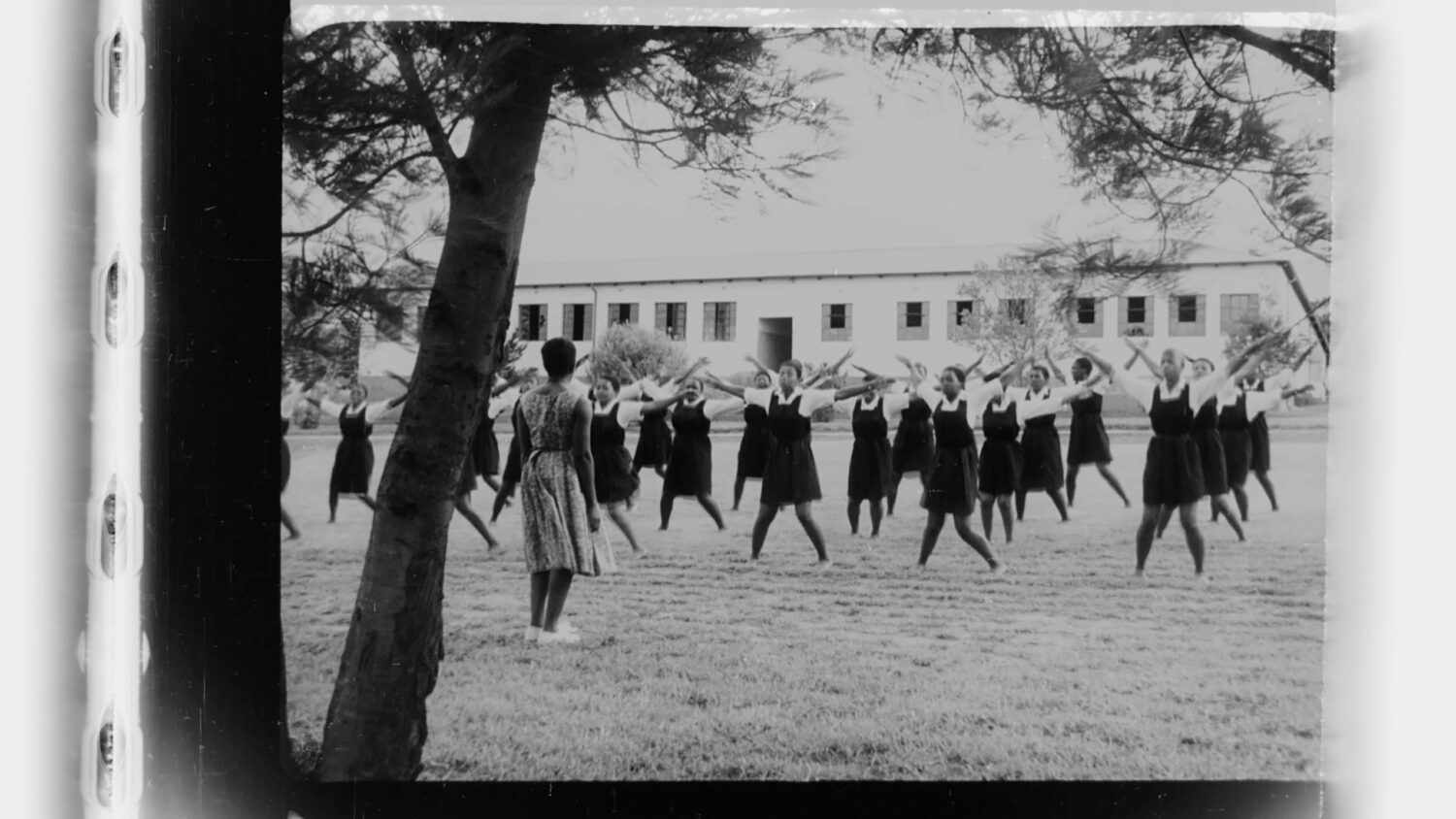
In my first few years at my former Whites-only primary school in East London (South Africa) in the early 1990s, there was something called the Standard 5 Art Wall. Each week, the teachers hung the best art from each Grade 7 class. And in those crucial first years as apartheid was thawing out, it was always the art of the white children that was good enough to land up on the wall. The poster that always had the gold star next to it belonged to a name and surname that was English: Sarah Wilshire, Katherine Jones, Jessica Robertson, etc.
As a 10-year old, these conditions birthed the following belief in me: that it is not fathomable that my language, my drawings, my imagination could ever qualify to be on that wall. This was the birth of a staid belief about ability and Blackness. Even though I didn’t really understand what it meant to be Black, my environment was slowly educating me about whose names and hair and gestures and stories are poised for gold stardom. What was fathomable to me as a black child growing up in a newly integrating South Africa was that You! Little Black Girl can clean everything. You! can look after everyone. You! can be a teacher or a nurse. You! can even be a lawyer or a civil engineer, a shop owner or a judge.
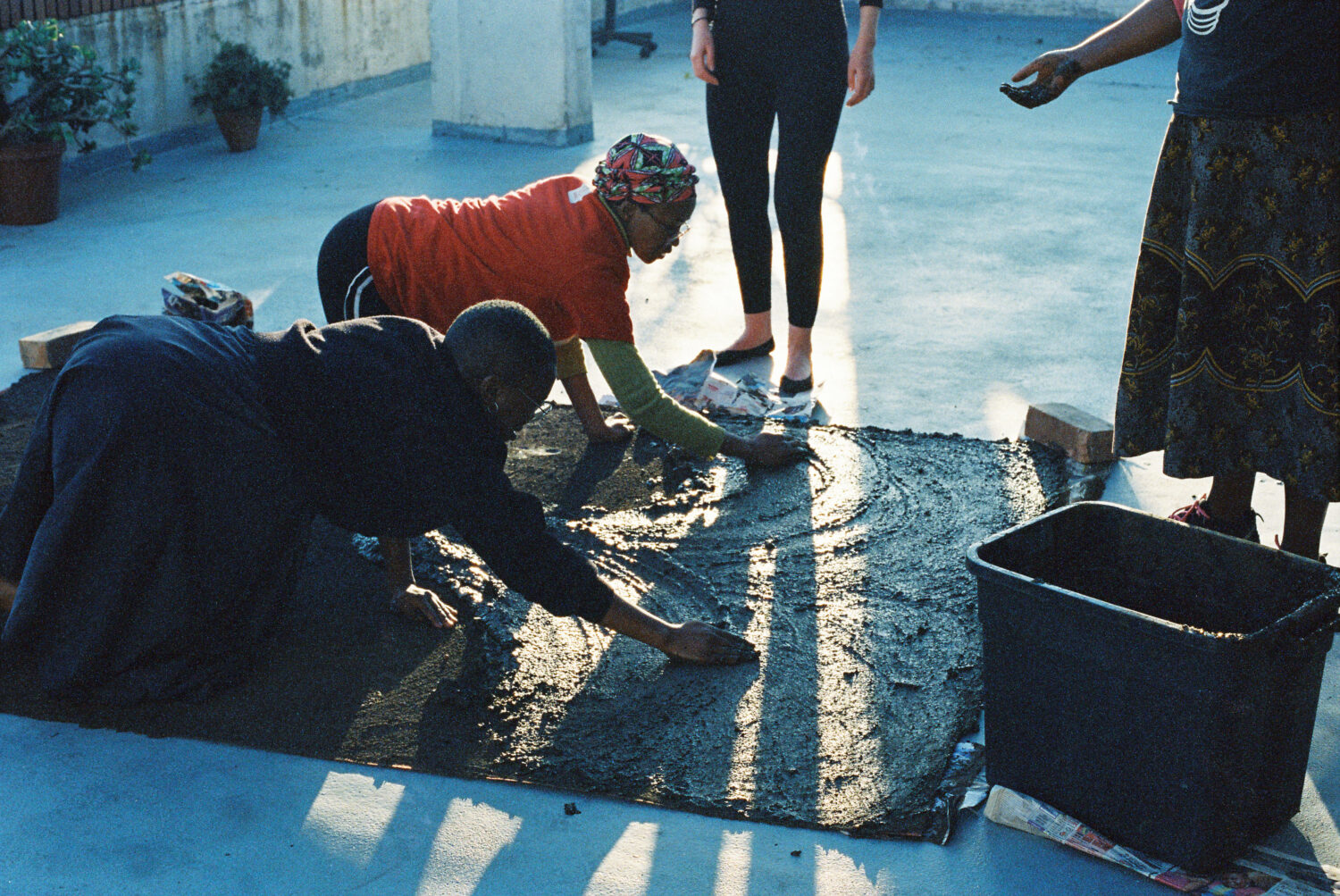
But You! have no ideas or imagination to contribute to the rest of humanity. You! can mimic, but you cannot imagine something legible enough to everyone as who You! are, with your difficult name and your strange culture. Your abilities only stretch as far as being able to express the painful conditions you find yourself in. You are always the object of someone else’s subjugation. But your imagination is futile or quaint. It can never be as useful as Jung’s or Freud’s or Spielberg’s or Hegel’s. It does not exist to move civilisations forward.
I will admit that my intention for making a film has something to do with the outward naming of the madness that has produced such beliefs in me. But it’s also about having a document to say to myself: I did something about my internalised racism and this social illness that has rendered my imagination uninvited. I did not waste my rage. I did not waste my name. I did not waste the imagination that has always actually been there — gorgeous.
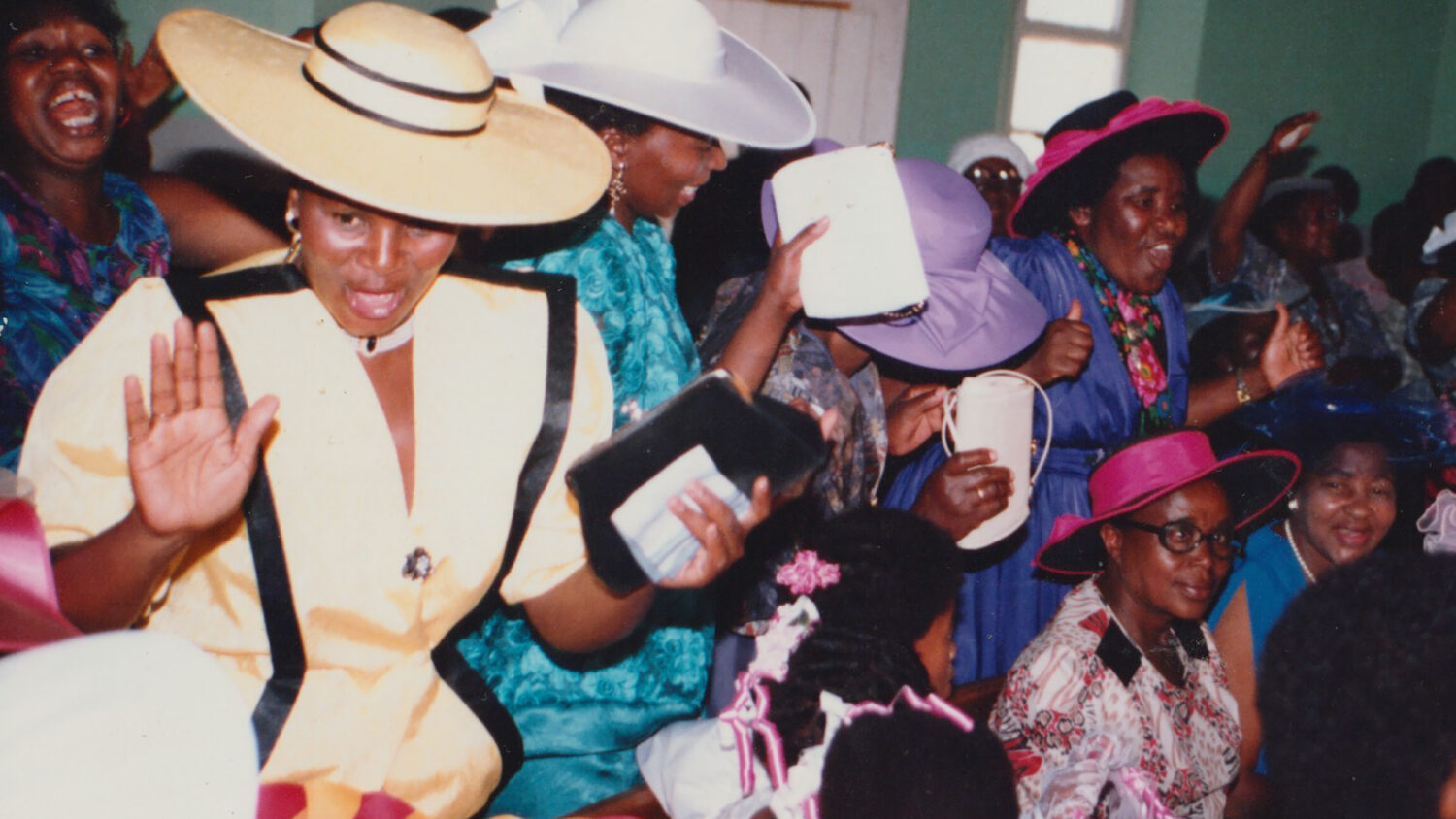
I’m well aware of that brilliant Toni Morrison quote about how racism is a distraction. And it belongs somewhere here. But for me, the road to really overcoming the distraction that is racism began with diagnosing and understanding how I had been racially conditioned to believe lies about myself and others, rather than deny its potency, I sought to privately identify the ways this malignant disease had actually affected my psychological, emotional, physical and spiritual life. Why? So that when it came time to dissolve its essence, I knew the shape and the form of the thing I was dissolving and why I was doing so: to recover mine and your humanity —— whose destruction is always the throbbing target of any colony. White people are not exempt from this by the way, for the colony plants its seeds of manipulation on their humanity long before those seeds grow fecund over everything else.
Artistically, this film is my attempt at using cinema and the power of storytelling to create some universal solace, the breaking of earnest ground when it comes to what we can do about the globally shared condition of racism. I am aware that cinema as a technology, as a tool, a human invention has been used to inform how we see and understand each other on one hand, but on the other, it has been used to gratuitously manipulate, misinform and harm the humanity of people from certain geographies, cultures, genders, orientations —— not least Africans —— from the first time it encountered us.
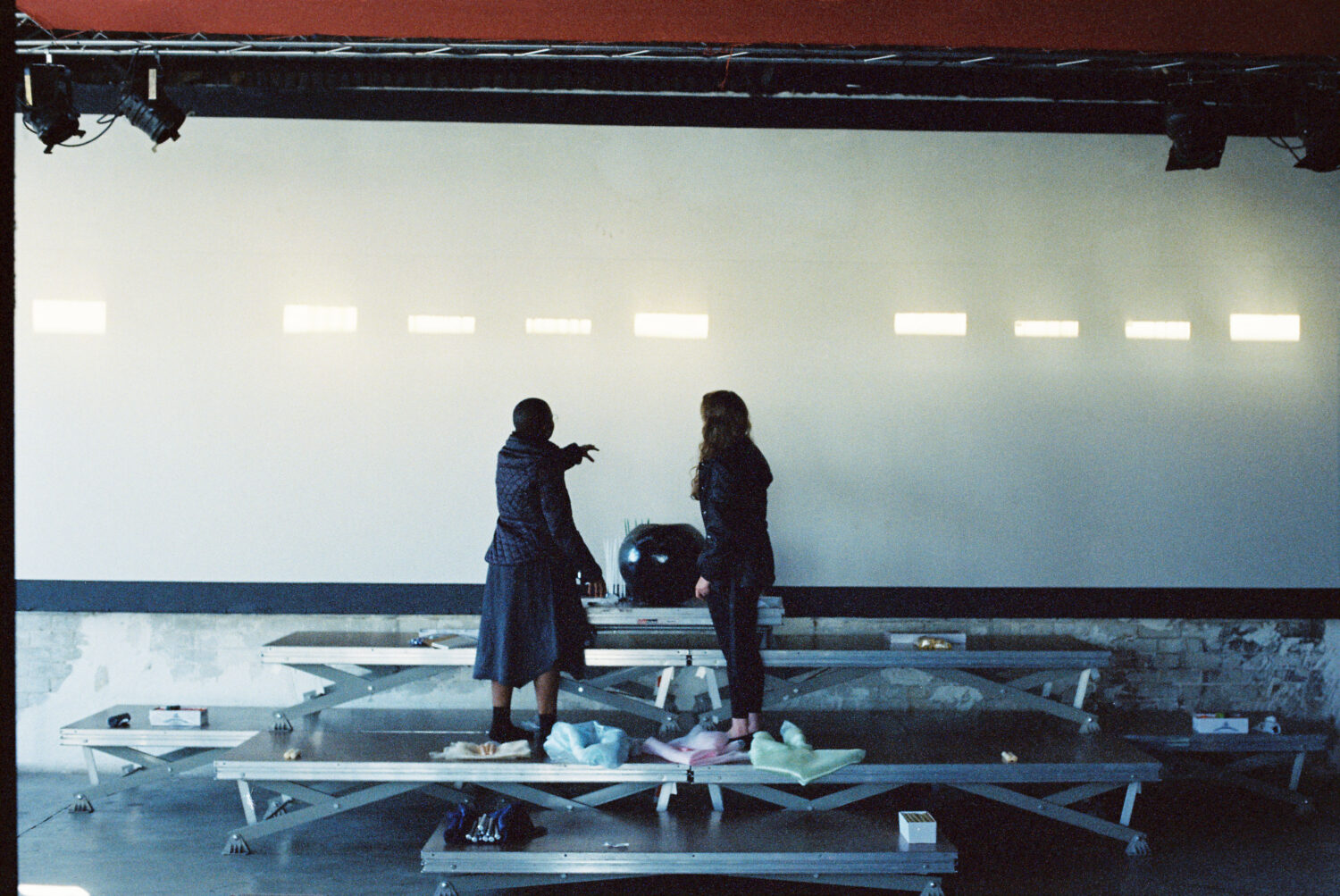
What does this medium mean in the hands of an African woman in the 2020s? What does it mean in the hands of an African woman looking at history, contending with the present and trying to imagine a future? What must happen after we have named the problems? How must we live together?
I am a student of beauty. I believe in the aesthetic carriage of information, knowledge, feeling and emotion as a way of reaching people beyond their political sensibilities. It concerns me that feature documentaries, especially ones about Africa, often sacrifice aesthetic value for the sake of the message. Equally, I want to challenge the visual noise that can sometimes become of Black aesthetics under the auspices of representation. By this I mean the pastiching of cultural artefacts that look striking and beautiful, but which sometimes have no ideological meaning when they are placed together. I want to use the visual power of cinema to communicate a message that could only have come from the lived experience of a Black African person in the 21st Century.
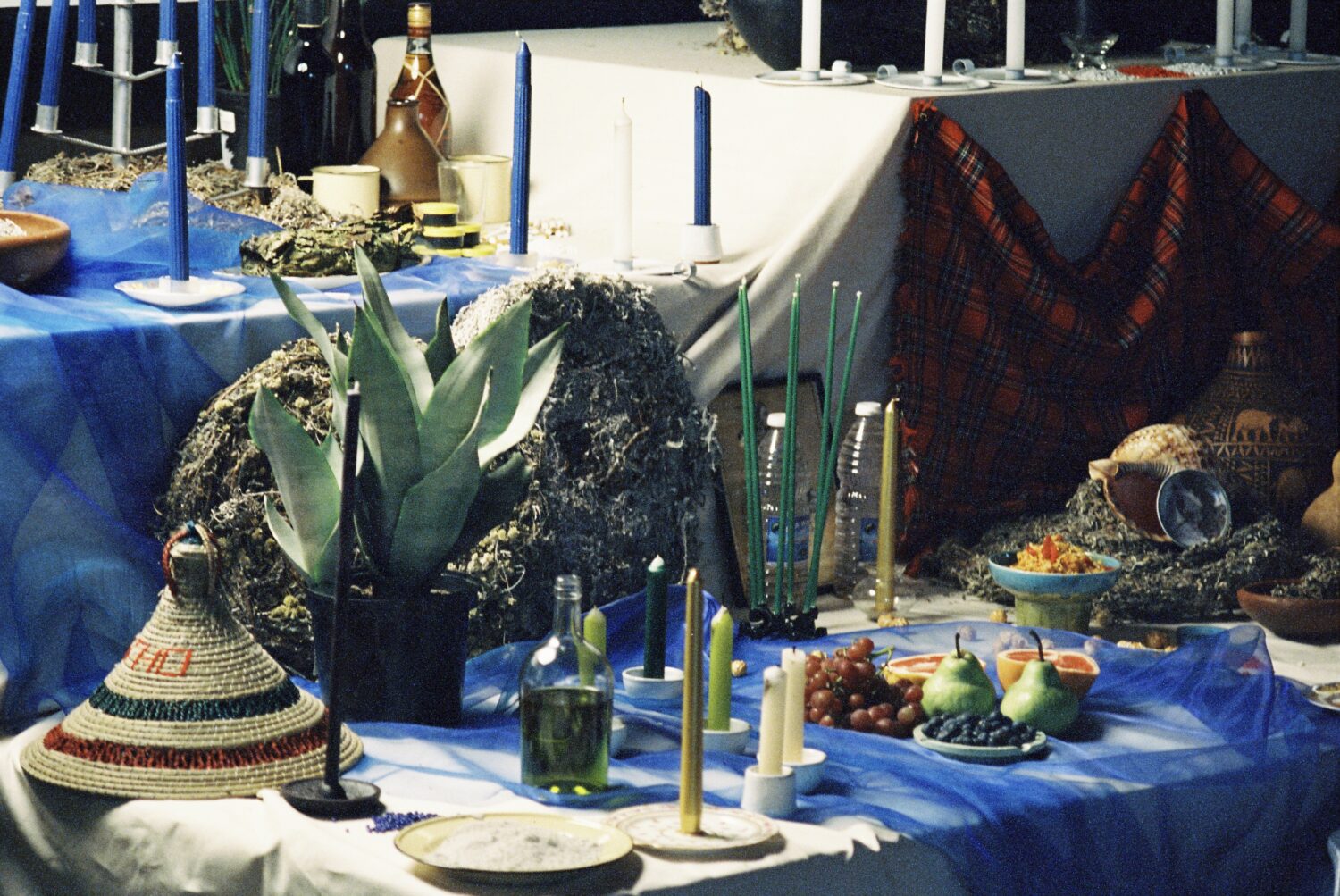
As a first time filmmaker, I am consistently engaging with and learning from the work of filmmakers I respect: Djibril Diop Mambety, Andrei Tarkovsky, Fanta Regina Nacro and RaMell Ross, among many more. MILISUTHANDO, which took many years to make, is reflective of the respect my collaborators and I have for cinema as a medium.
That said, we also want this film to communicate something very important to us: we in the Global South are perpetually receiving and accepting myriad stories and knowledges from the Global North, which have helped us to better understand and relate to Western and Eastern cultures and ways of life. I want this film to represent the validity of the notion of the Global North receiving complex, nuanced and legitimate knowledge systems through the stories of the Global South, not for the sake of fairness, but because we might actually know the answers to some of your questions.
Feature image: The making of MILISUTHANDO. Courtesy Milisuthando Bongela